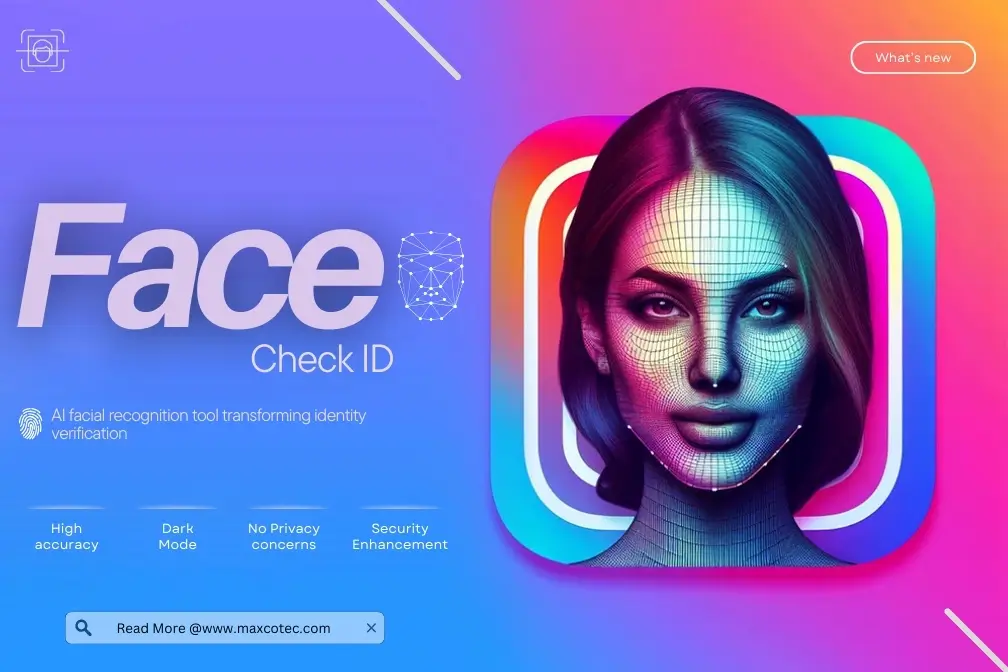Key Features:
- Facecheck ID is an AI facial recognition tool transforming identity verification. It offers versatility across sectors, emphasizing security and convenience.
- It utilizes advanced algorithms to confirm identities through facial characteristics.
- Applications of Facecheck ID include employee verification, access control, and secure online transactions.
- The pros of Facecheck ID are high accuracy, efficiency, and security enhancement. The cons are What’s new
- , quality dependency, and controversies over bias and misuse.
- Facial recognition technology is regulated by various laws, with GDPR in the EU and state-level regulations in the US.
- Clear guidelines and supervision while using Facecheck ID are necessary due to ethical and legal ramifications.
- AI improvements, bias mitigation, and government regulation impact advancements in facial recognition technology.
- Facecheck ID offers advantages but raises concerns about privacy, security, and legal compliance. Maintaining responsible use and compliance is crucial. It requires continuous communication and promotion of ethical practices.
Facecheck ID stands out as a groundbreaking AI facial recognition tool. It is transforming identity verification and offering versatile applications across various sectors. Facecheck ID delivers heightened security and unparalleled convenience.
Utilizing advanced algorithms, Facecheck ID quickly and precisely confirms identities. It works by examining facial characteristics against images. However, worries about privacy, legality, and ethical issues persist. It emphasizes the importance of clear information and strong regulatory supervision.
In 2024, facial recognition tech, as reported by tech blogs in the USA, means balancing new ideas with protecting people’s rights. It’s about finding a middle ground between innovation and keeping privacy safe. As Facecheck ID changes how we secure things and how society works, underscored by discussions in tech blogs in the USA, it’s essential for everyone to be accountable. It is crucial to do what’s right to ensure the responsible use.
Understanding Facecheck ID

Facecheck ID operates by analyzing facial features through advanced algorithms. It compares them with stored data and verifies identities in real-time. Its applications range from employee verification and access control to facilitating secure online transactions.
Businesses globally have embraced Facecheck ID to streamline their identity verification processes. It has led to a boost in security across different sectors. Facecheck ID effortlessly integrates with current systems and user-friendly interface. This integration makes it the top pick for organizations aiming to update their security protocols. With technology constantly evolving, Facecheck ID remains at the forefront. It offers dependable and effective solutions to meet the ever-changing demands of the digital era.
HuraWatch – Watch Free Movies and TV Shows Online
The Safety Debate

Pros:
- Accuracy: Facecheck ID offers high accuracy, minimizing false identifications. Its advanced algorithms analyze facial features meticulously, enhancing trust in identity verification.
- Efficiency: It reduces the time and resources needed for verification, improving operational productivity. Users enjoy swift results, making interactions seamless.
- Security Enhancement: Facecheck ID adds an extra layer of security, thwarting unauthorized access and fraud. Authentication based on facial characteristics strengthens security protocols, instilling user confidence.
Cons:
- Privacy Concerns: Critics worry about potential misuse of biometric data, stressing the need for robust privacy measures. Unauthorized access or breaches could expose individuals to identity theft or surveillance.
- Quality Dependency: Reliable results depend on image quality, posing challenges in real-world scenarios. Poor lighting or low-resolution images may lead to inaccuracies, necessitating additional verification steps.
- Controversies: Instances of bias or misuse in facial recognition spark ethical concerns. Regulatory oversight and ethical guidelines are crucial for responsible deployment and usage.
Legal Landscape

When it comes to legality, the use of facial recognition technology is constrained by various regulations and laws. In certain areas, there are stringent rules governing its usage, particularly concerning data protection and privacy rights. For example, the European Union’s General Data Protection Regulation (GDPR) enforces strict guidelines on collecting and managing personal data. It includes biometric information such as facial images.
In the United States, there is currently no comprehensive federal law overseeing facial recognition technology. However, several states have introduced legislation aimed at limiting its use, especially in law enforcement and surveillance activities. As the discussion regarding its ethical and legal ramifications persists, the necessity for clear guidelines and supervision remains critical.
7 Best Plantronics Headsets for Sale – Top Of 2024
Ethical Considerations
Beyond safety and legality, there are additional ethical considerations surrounding the use of Facecheck ID. Critics argue that facial recognition technology can perpetuate biases and discrimination, particularly against marginalized communities. Research has shown that these systems are often less accurate when identifying people with darker skin tones, leading to potential discrimination in areas such as law enforcement and employment.
Moreover, there are worries regarding the transparency and responsibility in creating and using facial recognition tech. Many companies making these systems need to share details about how they operate or safeguard users’ privacy, raising concerns about accountability and supervision.
Case Studies and Real-World Examples
Numerous success stories underline the advantages of Facecheck ID in boosting security and efficiency across various industries. Yet, along with these triumphs, organizations adopting this technology encounter legal hurdles. These include worries about data privacy and the possibility of biases within facial recognition algorithms. Despite its potential, navigating these legal and ethical considerations remains paramount for responsible implementation.
Future Trends and Challenges

Looking forward, facial recognition technology shows promise, but it also brings big challenges. Experts expect more improvements in AI programs, along with attempts to fix biases and ethical issues. Facial recognition should be carefully regulated by government agencies to ensure that it continues to improve while also protecting people’s privacy and rights. It’s a balancing act between progress and protection.
Joint endeavors involving policymakers, technologists, and the public are vital. They lay down precise rules and norms to prevent potential misuse. By promoting openness, responsibility, and inclusiveness, we can work towards a future where facial recognition technology improves society. This progress should uphold fundamental rights and principles.
Airgram – Your AI Buddy for Automated Notes
Conclusion
Facecheck ID is a pioneering advancement in identity verification technology. It offers unparalleled accuracy and efficiency. But, the widespread adoption of this technology raises legitimate concerns about privacy, data security, and adherence to legal standards.
While Facecheck ID brings undeniable advantages, its safety and legality rely on responsible use and compliance with regulations. As we navigate the complexities of facial recognition technology in 2024 and beyond, businesses and individuals alike must stay informed. They should advocate for ethical practices and engage in ongoing dialogue to ensure the responsible and fair use of these innovative tools.






